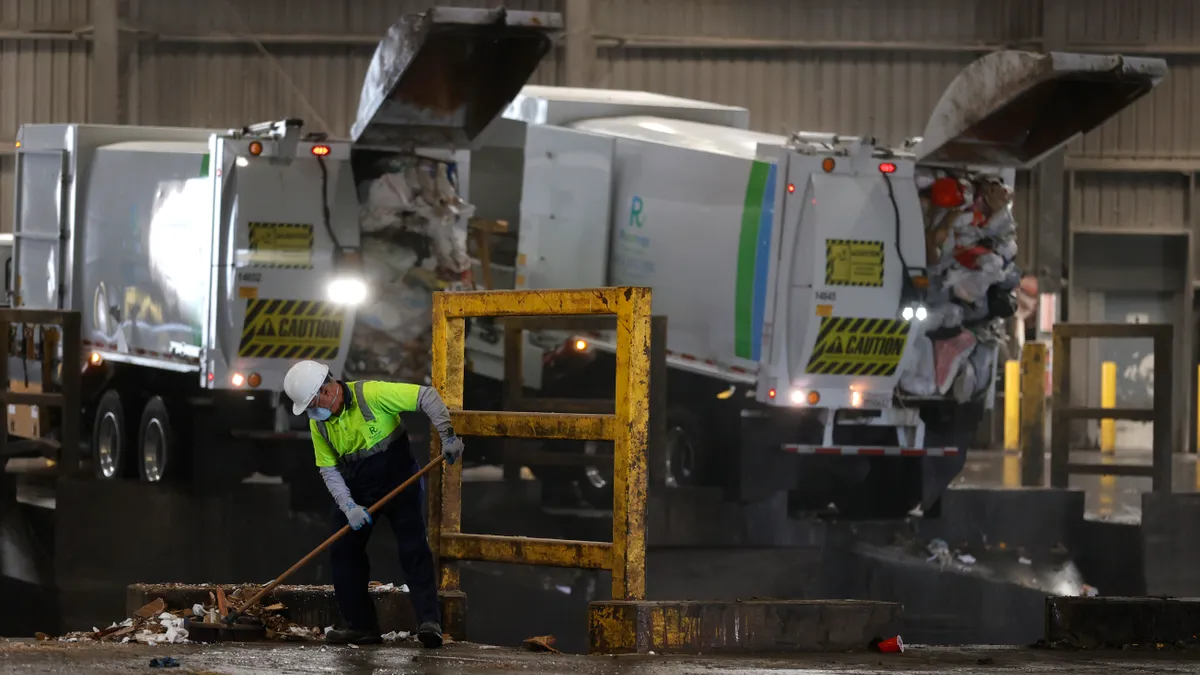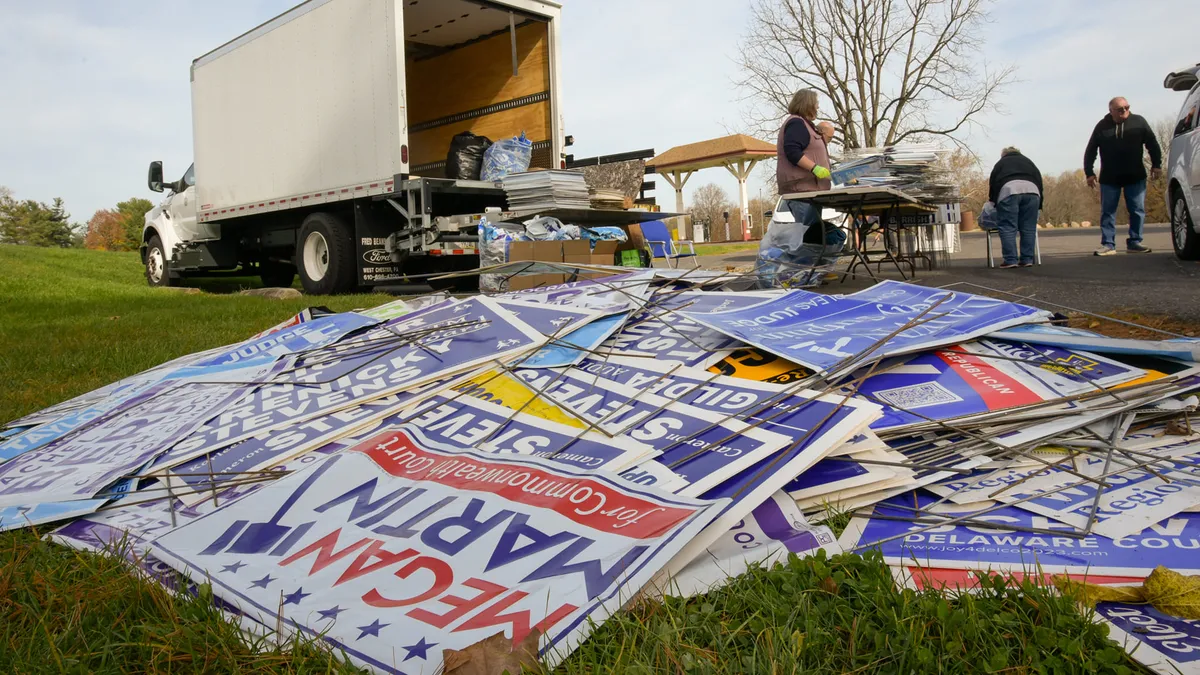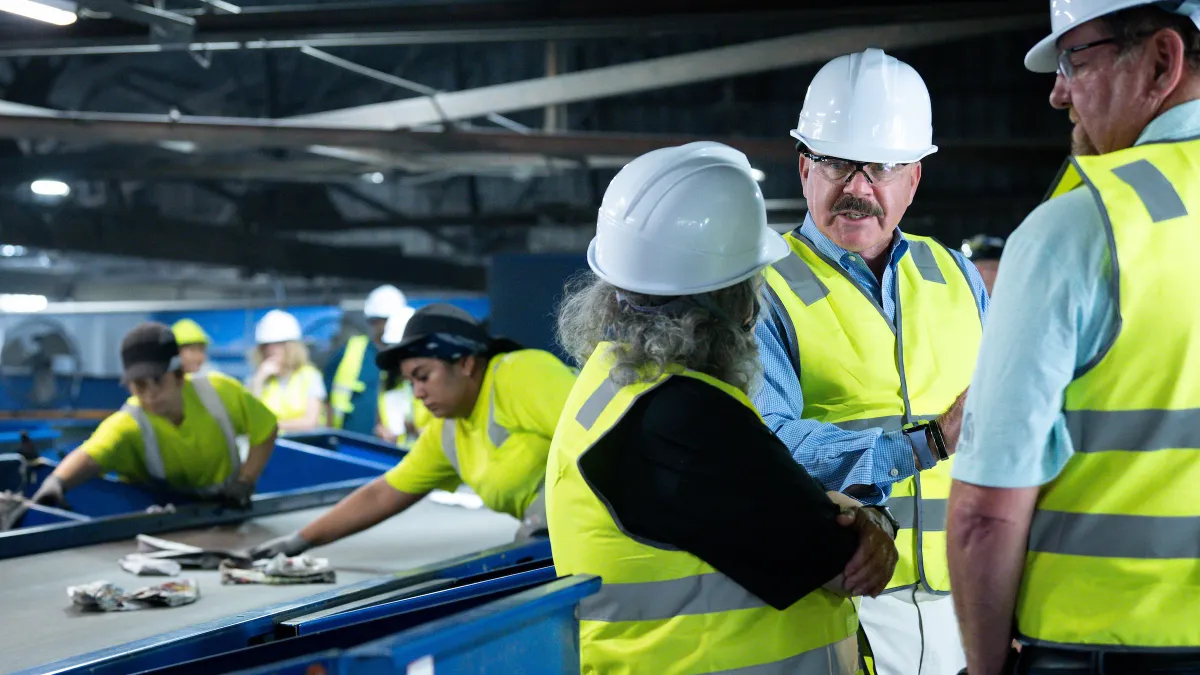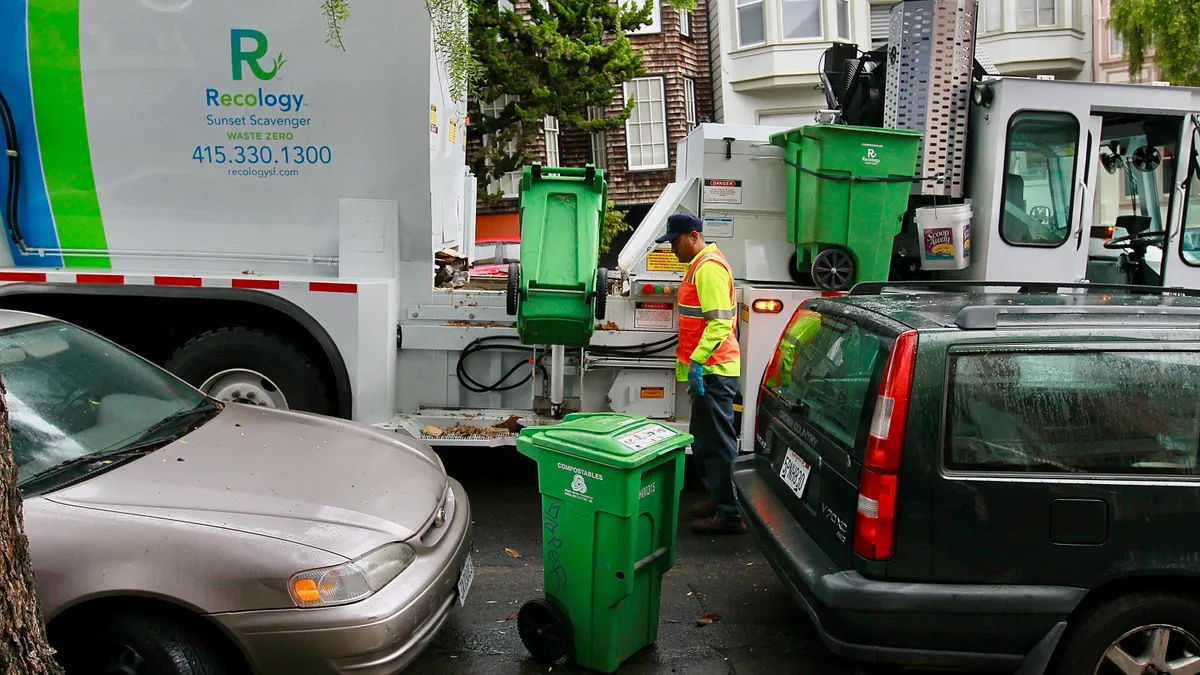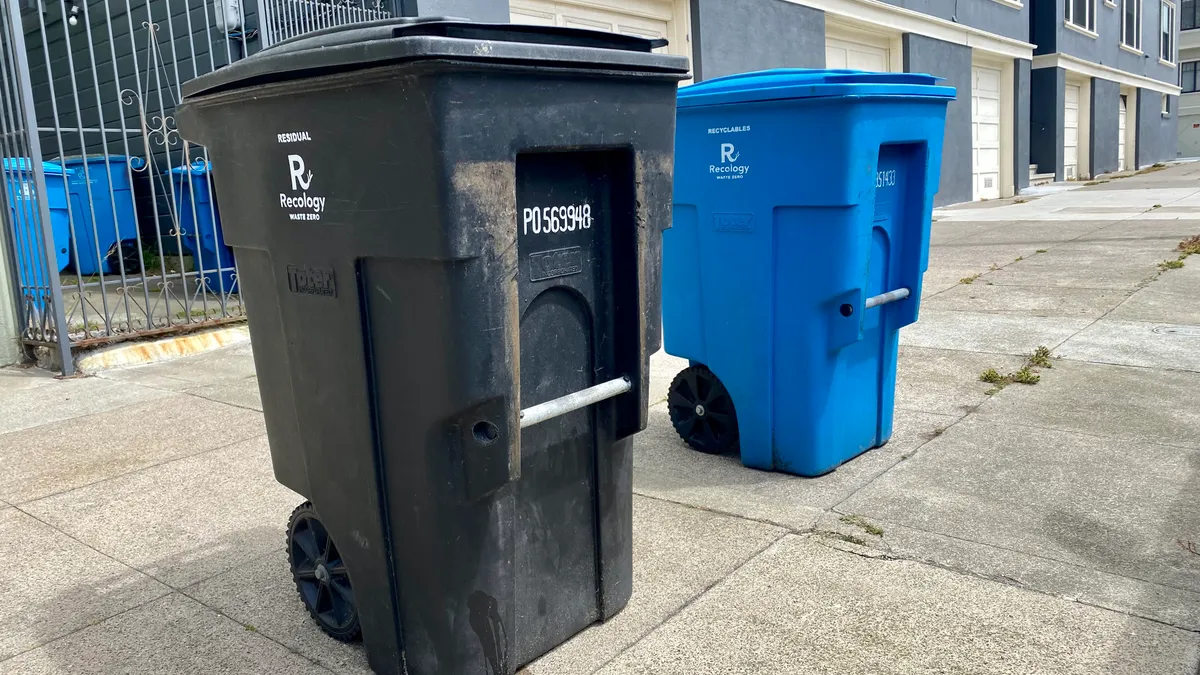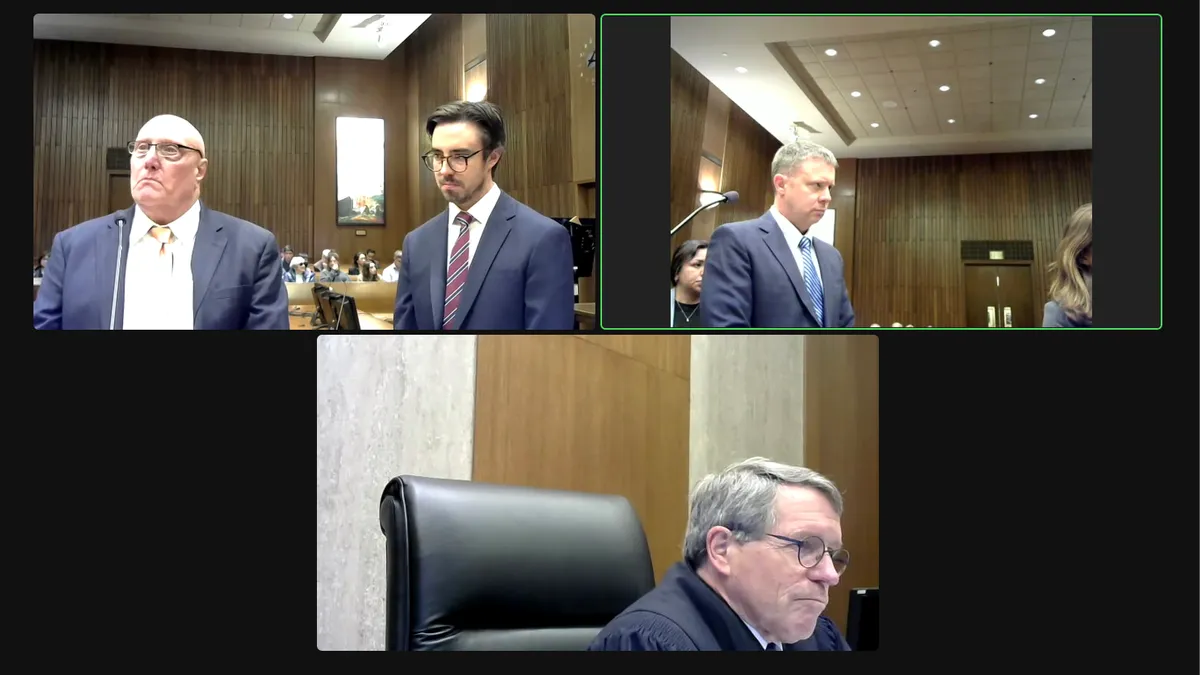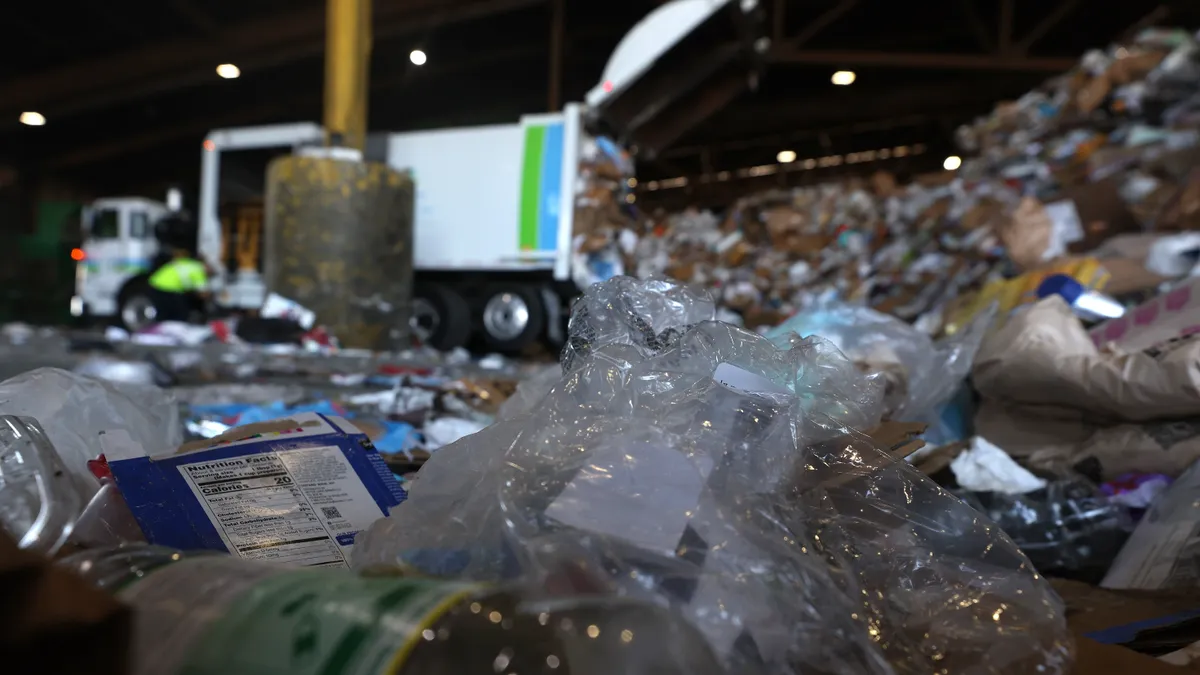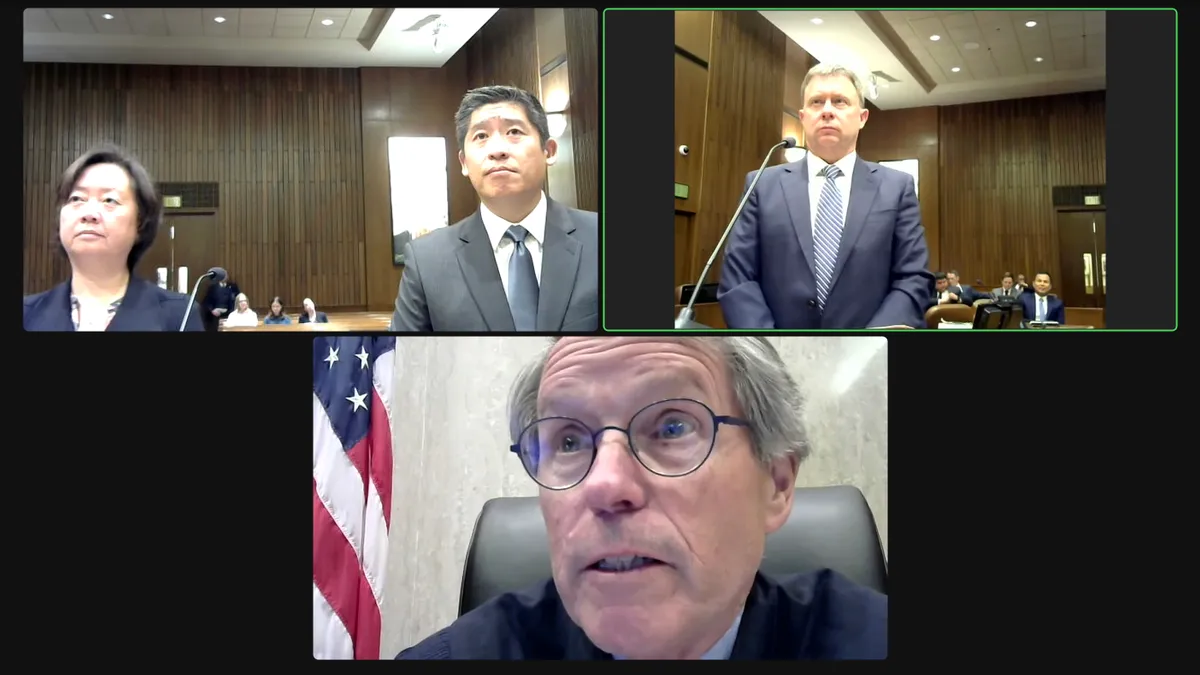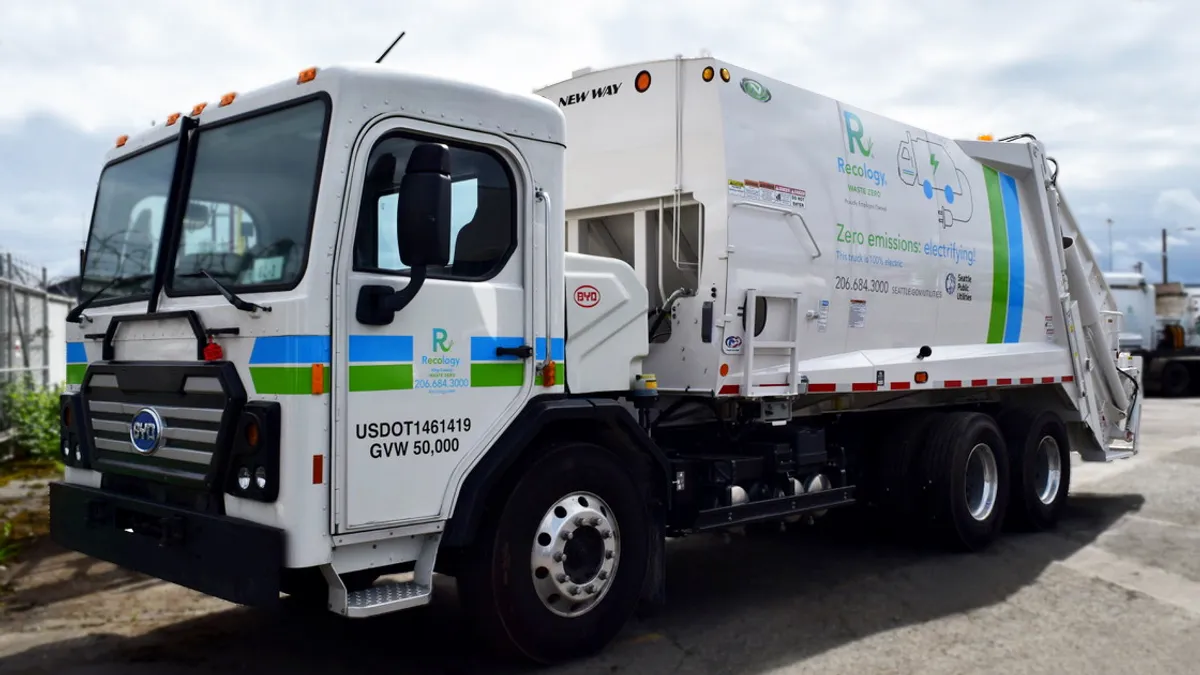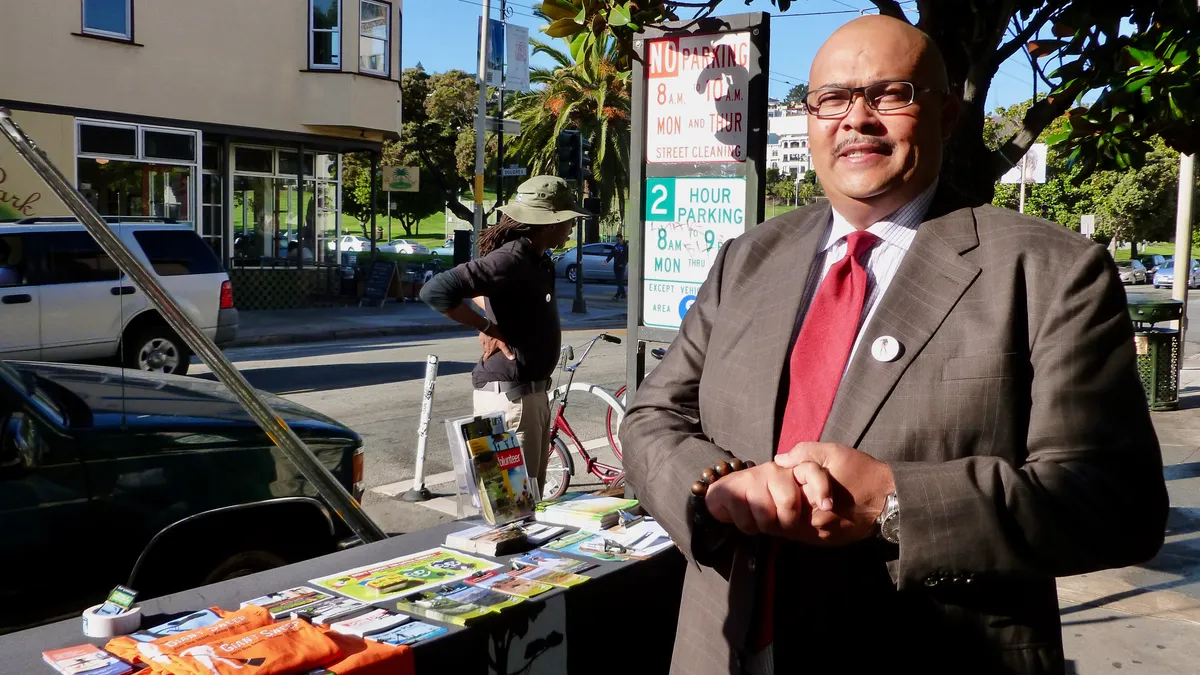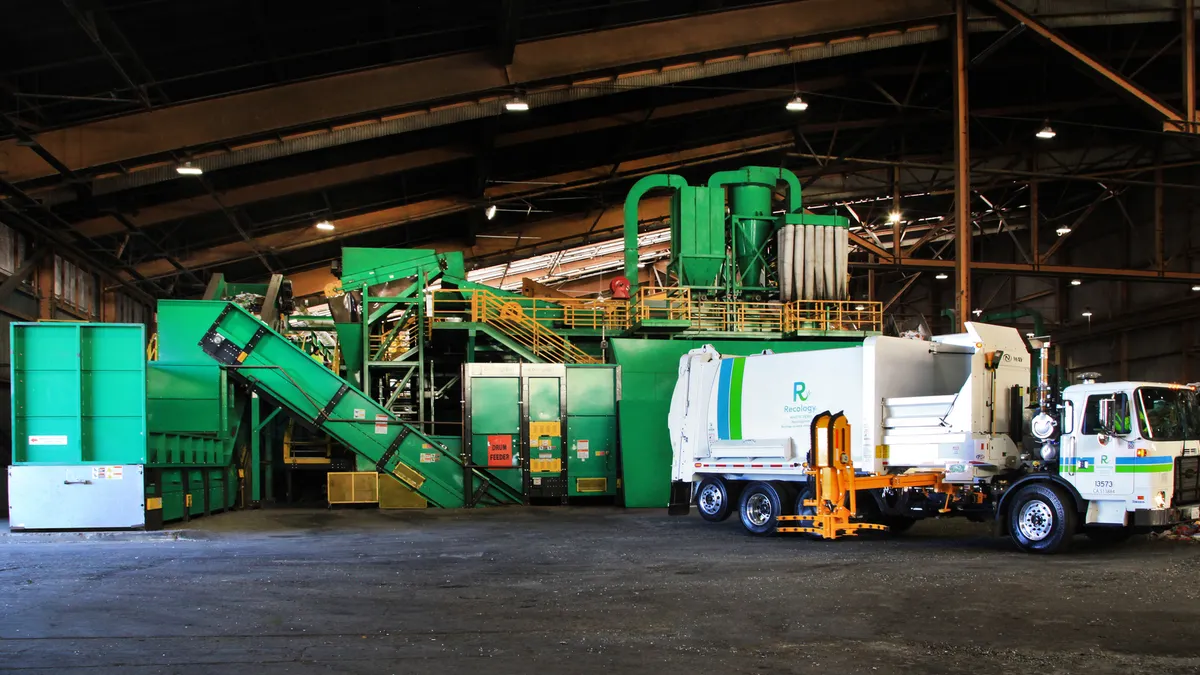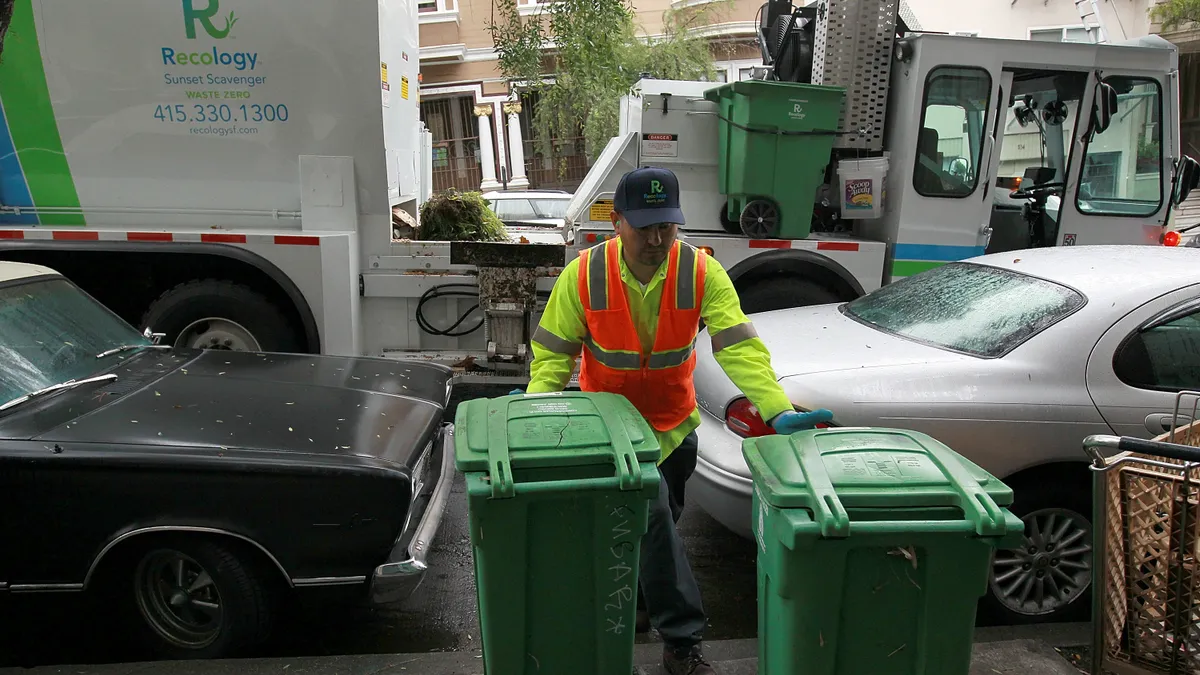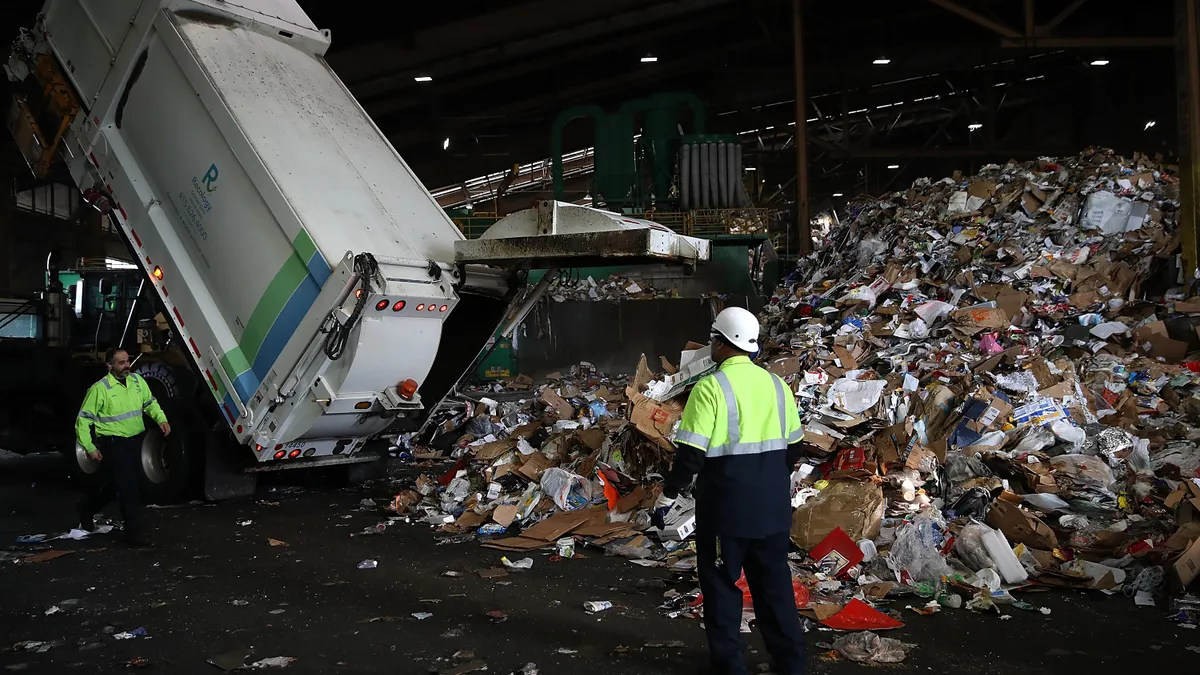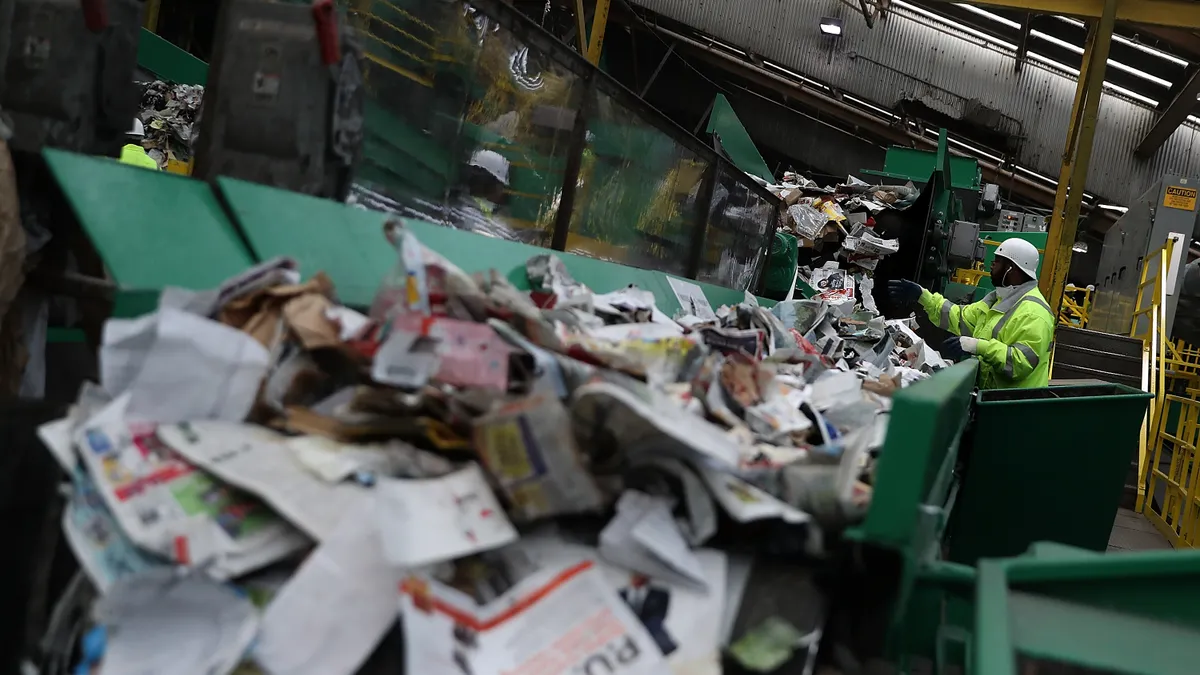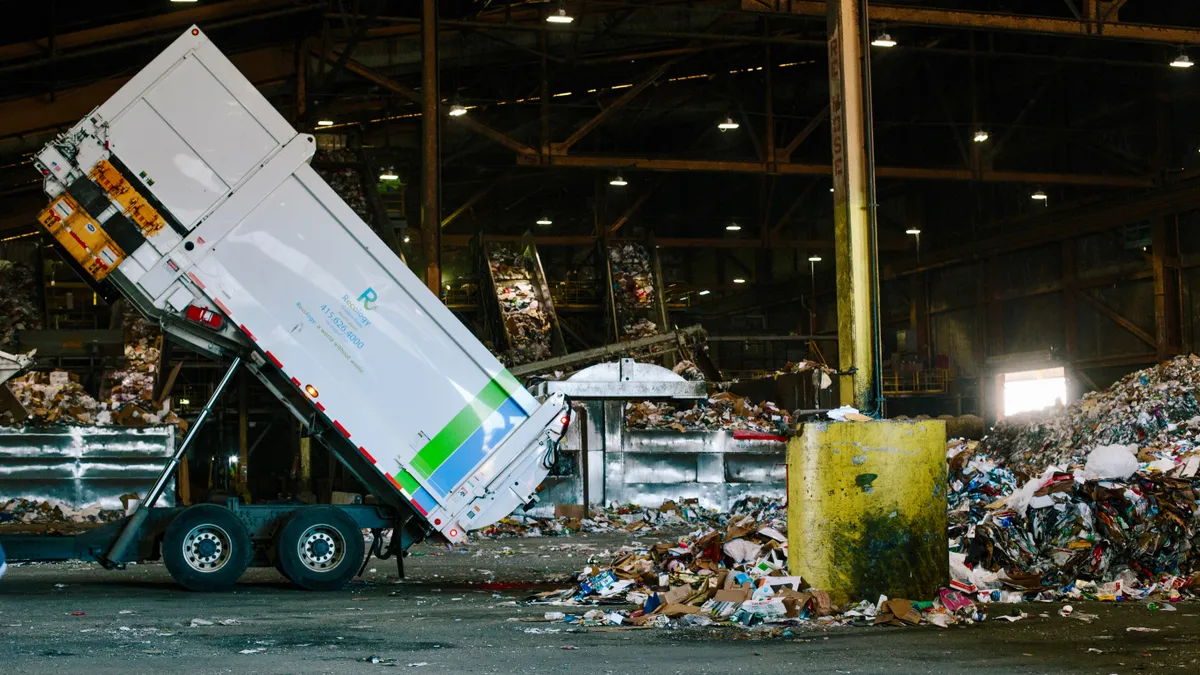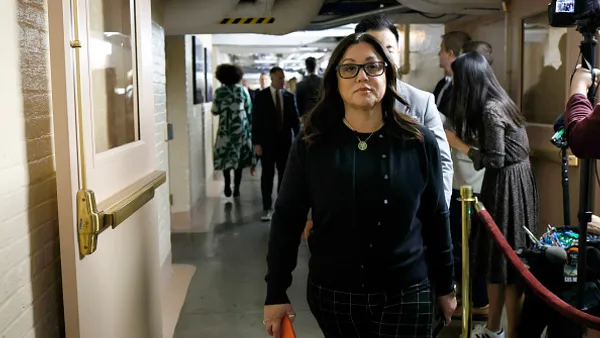Recology's public corruption scandal in San Francisco continues to unfold, costing the company millions in fines and ratepayer reimbursements to date. Following a recent deferred prosecution agreement with the U.S. Department of Justice, including a $36 million fine, the company would like to turn the page. Multiple signs indicate it could face further turbulence.
While a broader investigation into the city's former Department of Public Works Director Mohammed Nuru continues, as do court proceedings for two former Recology employees, the 100% employee-owned company is assuring stakeholders they shouldn't be concerned.
“It has been a challenging year-and-a-half for our company, but I’ve got some important news to share with you — news that I’m confident will help put Recology back on track," said CEO Sal Coniglio in a recent video to workers. “This agreement allows us to own up to the mistakes of the past while continuing to serve you long into the future. First, I want to make it clear that this type of mistake and this type of conduct was wrong and unacceptable. We must ensure that something like this never happens again."
That conduct, according to a statement of facts agreed to by Recology and the DOJ, included now-former employees of the company's San Francisco group (Recology San Francisco, Sunset Scavenger Co., and Golden Gate Disposal & Recycling Co.) spending more than $900,000 to bribe Nuru for favorable consideration in its business with the city from 2014 to January 2020. Examples include pushing for the city to pay higher tip fees at the company's Sustainable Crushing facility.
According to the filing, payments and benefits to Nuru included an estimated $150,000 per year (from 2014 through 2019) to an unspecified nonprofit where he had control over the funds, a total of $60,000 from 2016 to 2019 to a separate nonprofit that was used to pay for DPW holiday parties, a job for Nuru's son at Recology, an internship for Nuru's son (funded by Recology) at a separate nonprofit, $3,500 in funeral expenses for a DPW employee and a two-night stay for two people in an expensive New York City hotel while touring a pneumatic waste collection system.
“Now, under an agreement with the prosecutors, Recology’s San Francisco companies will pay a fine and accept a single charge of conspiracy to commit honest services fraud. When Recology complies with all terms of the agreement, the charge will be dismissed," Coniglio said in the video, adding that the company will not pass the fine on to customers.
In acknowledging these actions, Recology will pay $29 million to the U.S. Treasury and receive credit for another $7 million it already agreed to pay to the City and County of San Francisco in March for a related rate reimbursement settlement. The charge will be dropped in three years, starting from the date a final agreement is approved in court, if the company complies with all terms. Recology notes it had been enhancing compliance, holding people accountable, installing new leadership and cooperating with the government before being subpoenaed or informed of the investigation, a point also noted by the DOJ.
“San Francisco citizens were victimized for years in a bribery scheme involving public contractors and a powerful, corrupt San Francisco public official,” said Acting U.S. Attorney Stephanie Hinds in a statement. “The SF Recology Group and its parent company Recology, Inc. are taking positive steps to rectify that flagrant wrong and have committed to full cooperation in the ongoing investigation into San Francisco City Hall corruption.”
Initial local outrage has subsided somewhat since the company reached a $100 million ratepayer reimbursement agreement in March, leading to a 6.796% rate decrease for San Francisco customers on April 1, based on discovery of an overcharge that happened under Nuru's watch. At the same time, a local working group is examining possible changes to the city's waste collection system, one former employee is now cooperating with prosecutors and next steps are pending for a second former employee charged in mid-April.
"Recology has apparently undertaken enough remedial action to convince the DOJ that there is little chance of similar misconduct in the future," said Eric Beste, a partner specializing in white-collar crime in law firm Barnes & Thornburg's San Diego office after spending more than two decades at the DOJ focusing on related issues. "Although the [deferred prosecution agreement] resolves the government’s criminal investigation into the Recology entities, there is every reason to believe that former Recology employees will soon be charged."
Legal questions
This latest agreement between the DOJ and Recology marks a turning point for the company acknowledging certain facts and accepting culpability via local subsidiaries, but loose ends remain.
When news initially came out in November 2020 about the charges against Paul Giusti, government and community relations manager for the SF Recology group from 2012 to June 2020, Recology denied any broader involvement. "[W]e must state unequivocally that Recology did not provide a stream of benefits worth $1 million to the former Director of San Francisco Public Works. That is not who we are," said a company spokesperson at the time. Recology declined to answer a question about whether it stands by this statement.
According to the agreed-upon facts, this scheme mainly involved three now-former employees interacting with Nuru. Giusti was often the main point of contact. Giusti reported to John Porter, the local group's vice president and manager, from January 2018 until his termination in June 2020. Porter left the company in January of this year and faced his own charges in April.
Prior to that, from 2014 to December 2017, Giusti reported to Porter's predecessor — described in filings as "SF Recology Group Executive 2" — before that person was promoted to Recology's chief operating officer and served in that role until July 2020. Mark Arsenault, who held those positions during the specified time periods and also served on the company's board, could not be reached for comment.
Outside experts consider it an open question about how involved or informed others at the company may have been, based on the facts provided to date. Deferred prosecution agreements can sometimes be a tool for a company or its subsidiaries to take responsibility versus that falling on individuals, and retirement can also play a role in how prosecutors consider the ongoing risk of such crimes to continue, but more charges are considered possible.
“Not only are we talking about huge amounts in bribes, but it went for more than half a decade," said Craig Holman, a government affairs lobbyist at the nonprofit Public Citizen, who has followed numerous such cases over the years and called this one of the largest he's encountered. “It’s hard to imagine such a massive bribery scheme going on without all the key senior officials who are responsible for these types of expenditures [not knowing] what’s going on."
Recology has been working closely with federal investigators, according to DOJ filings, and notes it has been undertaking an overhaul of internal processes and policies that allowed these issues to occur. The company created new positions for a head of internal audit and director of compliance, and it often points to new leadership at the executive and board level.
After his promotion from regional manager to COO in July 2020, Coniglio became the company's CEO in January following the retirement of longtime leader Michael Sangiacomo. Recology previously said this move had no connection to the investigation. The DOJ's only mention of the company's former CEO is that he asked for Nuru's son to be terminated upon learning of his employment in 2017. Multiple other high-level Recology employees have also departed the company over the past year.
The company's board of directors has seen a shakeup as well, including the exit of its longtime chairman and multiple members. Recology named a new chair, Christa Steele, alongside Coniglio in January, and announced two new board members on March 23, Kim Box and Jeff Stiefler — but all three are no longer listed in any company materials. Steele's Linkedin profile notes her tenure on the board started in 2017 and ended in April of this year, with the disclaimer that she "joined board shortly before company became subject of a federal investigation for a multi-year period of time prior to when I became a director."
Around this time in March, Recology had agreed to a settlement with San Francisco about an inflated rate increase, which some viewed as a potential turning point, but charges against Porter came in April and added new questions about what might be next. Steele, Box and Stiefler did not respond to multiple requests for comment, and Recology declined to answer a question about their tenures.
The company announced two new directors on April 23, including James Lam whose election to chairman was also highlighted at that time. The company then announced three more directors in June, which it said marked "the formation of a full board."
Since the spring, this case has been relatively quiet, but legal proceedings have continued. In August, Giusti pleaded guilty to one count of conspiracy to bribe a local official and commit honest services fraud and agreed to cooperate. He remains out on bail, and a status conference about his case is scheduled for February.
DOJ information repeatedly notes that Giusti acted with "the knowledge and approval" of his former managers, putting the spotlight back on others as the case continues. Porter hasn't been back in court since an initial April appearance. He also remains out on bail and received permission for multiple out-of-state family trips this summer. At the moment, Porter's next court date is set for Oct. 25. Arsenault, his predecessor at the local level, has not been charged by the DOJ.
"The government clearly has its sights set on Porter’s predecessor. As for Porter, who has only been charged by way of a complaint, the delay in a preliminary hearing or indictment suggests that the parties are negotiating a possible guilty plea," said Beste, the former DOJ prosecutor, adding that the court will require a resolution or trial date at some point. "If Porter does decide to plead guilty and cooperate, his assistance could prove quite valuable in the investigation of his predecessor."
Porter's attorney did not respond to a request for comment.
Full cooperation by Recology means federal investigators now have access to other confidential company information, potentially beyond what they obtained in the initial Nuru investigation. Next steps for Nuru himself are also unclear, with no resolution announced yet following charges against him in January 2020. Multiple others outside of Recology have also been charged in connection with Nuru, but DOJ's timeline of events mentions more unnamed city officials and company employees that interacted tangentially with those in the spotlight. Holman said he expects "to see many more indictments coming out of this case."
As for any further legal consequences that could affect Recology itself, the DOJ will drop its charge against the three local subsidiaries if all terms of the deferred prosecution agreement are met. If that continues, the federal government agrees not to bring any civil or criminal charges against the company for the actions in question. Though, as Beste noted, the DOJ specifies "this exclusion does not apply to conduct relating to the 2013 and 2017 San Francisco rate increases obtained by Recology" that were part of the March rate reimbursement settlement.
"While Recology has resolved its liability to the City of San Francisco for the 2017 rate increase, it apparently has no such deal with the federal government," said Beste.
Another case related to the rate settlement also remains pending in state court. In February, local residents sued Recology — following the news of charges against Nuru and Giusti — and were hoping to have the case consolidated with the city's subsequent rate overcharge suit. Speaking in May, lawyers for the plaintiffs said their goal was to potentially get more money back for ratepayers and obtain further information about the city's role in this process.
Recology disagreed with the cases being consolidated, and a judge finalized the city's settlement case in late June. Attorneys for the plaintiffs haven't responded to more recent requests for comment, but September court filings show the case remains ongoing and Recology is advocating for dismissal.
Local action
As these broader questions continue about the potential legal consequences, Recology's operations in San Francisco remain largely unchanged given its lock on most of the city's collection that dates back to franchise permits created under a 1932 ordinance. Multiple parties involved anticipate any wide-scale change will be an uphill political battle, but they haven't ruled it out yet.
In the meantime, Recology has been trying to refresh its image and put the focus on its employee-owners. This spring, it rolled out an ad campaign highlighting workers saying "thank you" to local residents in multiple languages and saying "let's keep making a difference together." Throughout the time of this corruption coming to light, sources and local reports have repeatedly said many residents still appreciate Recology's frontline employees and don't equate them with the legal issues.
“The fact of the matter is, Recology is not necessarily unpopular in San Francisco. People are happy with the service," said John Bouchard, secretary-treasurer of Teamsters Local 350. “As it stands right now, it’s business as usual, and hopefully, for my members, it stays that way."
Recology also kicked off the required rate-reimbursement process in July, with reports of checks heading out to current and former customers for hundreds of dollars in some cases. In August, a memo also went out from the city attorney's office to all elected officials, department heads and members of city boards and commissions reminding them of new ethical conduct terms that apply to Recology for four years. Under the city settlement agreement, Recology employees can't make a gift of any value to city officials or make a payment of any value at the behest of city officials.
A potential ballot referendum to overturn the company's franchise arrangement — something critics have tried unsuccessfully in the past — has not materialized. Quentin Kopp, a former judge and vocal critic of the franchise monopoly, recently said efforts to drum up support for a new ballot push have yet to come together.
Aaron Peskin, a member of the San Francisco Board of Supervisors, announced plans in March for a task force that he told Mission Local would explore "whether we should be working to acquire Recology’s assets, including its transfer station and its fleet of specialized hauling vehicles, with an eye toward municipalizing trash collection." That entity was later renamed the Refuse Working Group and held one meeting on May 21, which laid out alternative options including "competitive bidding" and "in-house" municipalization.
While the initial timeline included multiple meetings over the summer, and a final report in November, the group has not met since. Peskin's chief of staff said no further updates were available about next steps. Recology declined to answer a question about its view of this working group.
One other potential area for change, which some view as falling outside of Recology's franchise permit purview, is the awarding of ancillary contracts, such as one for collecting material from government buildings. After the initial Giusti news broke last fall, the Board of Supervisors declined to award Recology a new, five-year contract for that service it had already been performing for years.
The city's Office of Contract Administration eventually changed the terms to a six-month contract that ran through June, which did not require action by the board. A spokesperson recently confirmed the contract was later extended to Nov. 30 and no further decisions have been made.
Earlier this year, area competitors Waste Management and Republic Services publicly expressed interest in bidding on that contract and having further discussions about working with the city. Both companies have since been quiet on the topic, and Waste Management declined to comment.
While some believe further impetus to change Recology's franchise position could come from working group recommendations, many others hope to see the 100-plus-year-old company and its employee-owners maintain a dominant status in the local market.
“Having to work for any other company, they would lose that employee ownership, and it’s a significant benefit for our members," said Bouchard, who participated in the initial working group meeting and doesn't consider municipalization a good option for his members. "Our priority, as the local who represents them, is to make sure they don’t lose anything through this process."



